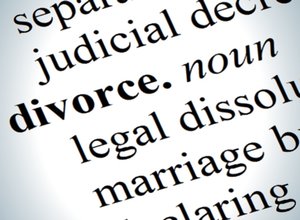
The federal Divorce Act stipulates that in order to modify court-ordered spousal support payments, a “material change in the means, needs, conditions or other circumstances of either party” must exist. The court must believe that if the new circumstances had existed at the time of the original order, that order would have been significantly different. While retirement often brings important changes to a person’s life and financial circumstances, these changes may not necessarily warrant a reduction in support payments. Contact an Ontario family lawyer today to discuss the specific aspects of your case.
An August Financial Post article addressing the impact of retirement on spousal support orders analyzed two recent decisions in Ontario [summarized below]:
Cossette v. Cossette
In Cossette v. Cossette, the husband and his Ontario family lawyer wanted to terminate his support payments following retirement at age 55, the earliest age upon which he could retire at an unreduced pension. He had paid spousal support for seven years following a marriage of 22 years in length. His ex-wife expected to work until she turned 65 years old.
After retirement, Mr. Cossette’s income got reduced from $104,000 to $48,000 per year. He also moved to Alberta, bought a new house there, and got engaged to a new partner.
The presiding judge in this case had dismissed Mr. Cossette’s Motion to Change on the basis that he chose to retire early and that his circumstances had not changed enough to warrant terminating spousal support payments to his ex-wife.
“Mr. Cossette assumed that just because he was retiring and would have less income, he could terminate spousal support,” wrote the judge in his decision. “This is an erroneous assumption. The Court does not accept the fact that the stresses in relation to the payment of spousal support were enough to stop him from working. He wanted to retire.”
Hickey v. Princ
Hickey v. Princ differs from Cossette v. Cossette in that the husband’s financial circumstances actually improved following retirement. Though his income got reduced from $125,000 to $74,500 annually, his asset base grew and he married a woman who owned five properties and earned roughly $150,000 annually.
Nevertheless, the husband wanted to reduce his spousal support payments to his ex-wife of 17 years, whose ill health rendered her unable to work. In dismissing this Motion to Change, the court considered the husband’s financial reality, his actual income versus his earning potential, and the means available to his new wife.
The outcome of the two cases makes it clear that in Ontario, early retirement does not constitute sufficient grounds for an automatic reduction in spousal support payments. This isn’t the case across Canada, however. In British Columbia, a 2014 Court of Appeal case made it clear that “the law does not require payor spouses to maintain spousal support at a level that forces them to continue to work after becoming eligible for full retirement benefits.”
If you are considering a divorce or are involved in any former of legal family dispute, contact an Ontario family lawyer from Nanda & Associate today to learn how we can help.





